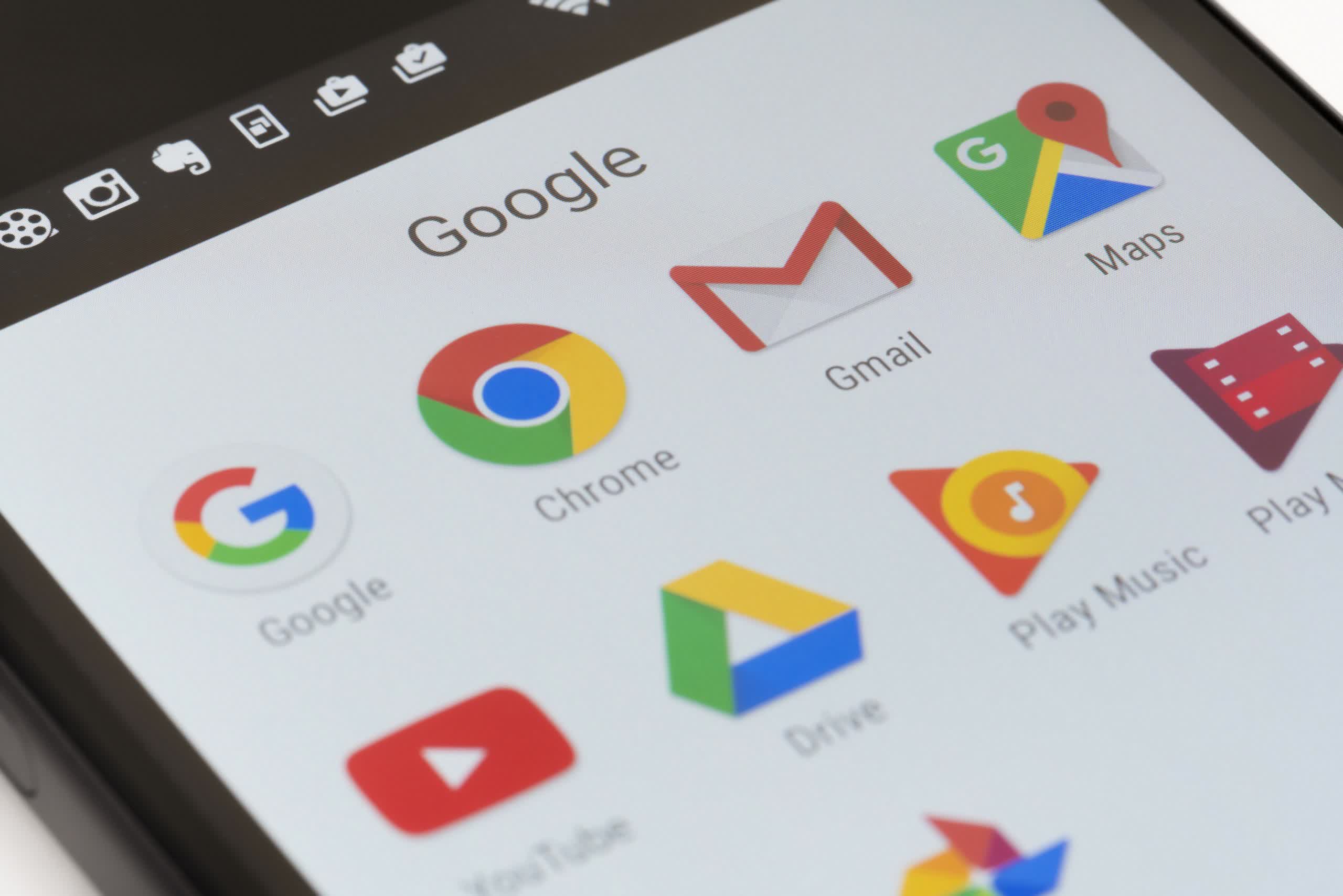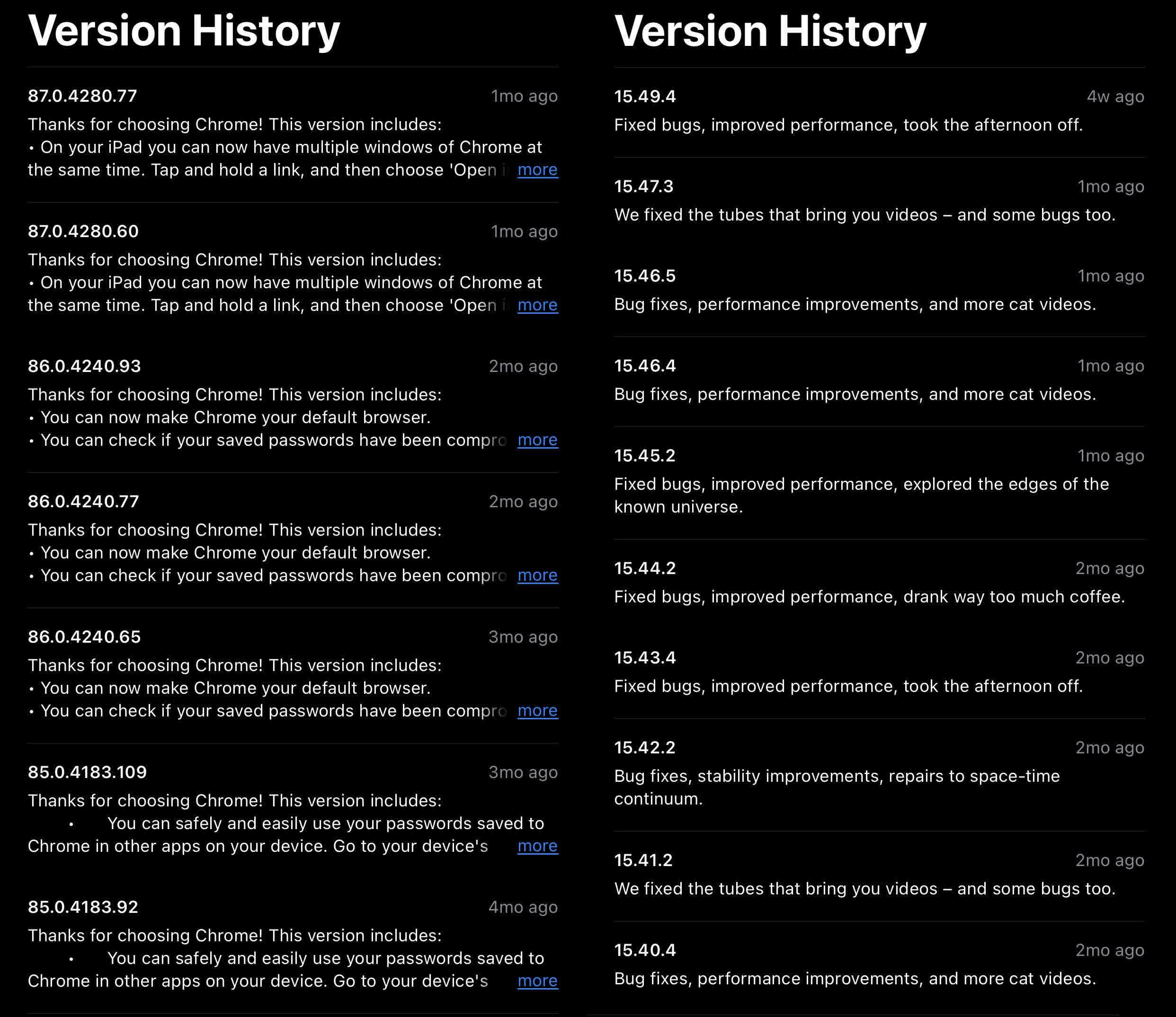TL;DR: If you were to believe the mass hysteria stirred up by Facebook, Google, and others, Apple's privacy-triggered adpocalypse should be in full swing. Last month, the Cupertino tech firm went live with its new privacy "nutrition labels" in the App Store. However, Google is postponing the advertising catastrophe by not updating its apps.
Fast Company points out that the last time Google updated any of its iOS apps was December 7. That date is only one day before Apple's privacy labels went into effect. Starting on December 8, developers had to begin filling out data collection practices for any new apps or updates submitted to the App Store. This information is then used to create labels to inform users of an app's tracking policies before downloading an app.
Google has several applications on the iOS App Store, including Google Drive, Google Docs, Google Sheets, YouTube, YouTube Music, Google Authenticator, Google Duo, and its keyboard app Gboard. By updating them before the December 8 deadline, Google has effectively skirted Apple's new privacy policy, at least until the apps' health begins to suffer.
How long the search giant will neglect its iOS apps remains unclear. It has only been four weeks since Google's last update, and apps generally have different updating schedules. However, a quick look at version histories shows that Google has consistently updated its iOS apps multiple times per month (below). So going for four weeks without an update to any of them is highly unusual.
Google has not responded to requests for comment regarding the situation.
While it has not said much directly, Google's stance on Apple's new rules was indirectly made very clear last summer, when several marketing agencies spoke out against Apple's then-upcoming privacy policies. They particularly disliked the not yet fully implemented iOS 14 feature that will allow users to opt-out of tracking on a per-app basis. Both Google and Facebook financed these groups, so while it did not speak directly, Google put its money where its mouth was, as the saying goes.
Facebook has been more in-your-face with Apple when criticizing the rules. It began ringing the alarmist bells last August, warning those who used its Audience Network that it might not even be worth offering the advertising platform on iOS 14 once Apple turned on the new privacy features. Apple said it would delay implementation of the privacy policies until 2021 but then backtracked a month later. Facebook then went on an ad campaign against the tech giant, taking out two full-page ads claiming Apple's policies would destroy small businesses.
However, for all of Google's indirect and Facebook's direct bemoaning, the only sympathy seems to have come from ad agencies and a handful of app developers. Consumers have been mostly unmoved by the criticisms. On the contrary, iPhone users have widely applauded the idea of having more control over their personal data.
Image credit: ymgerman

